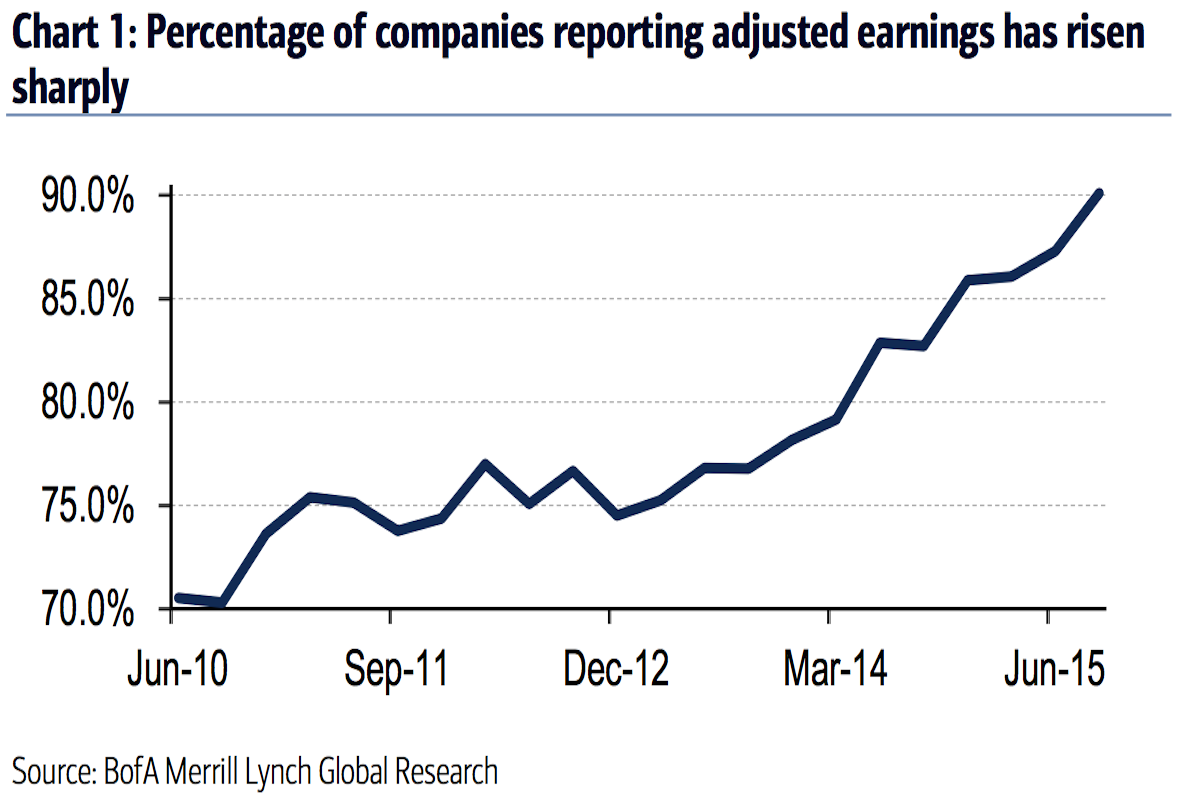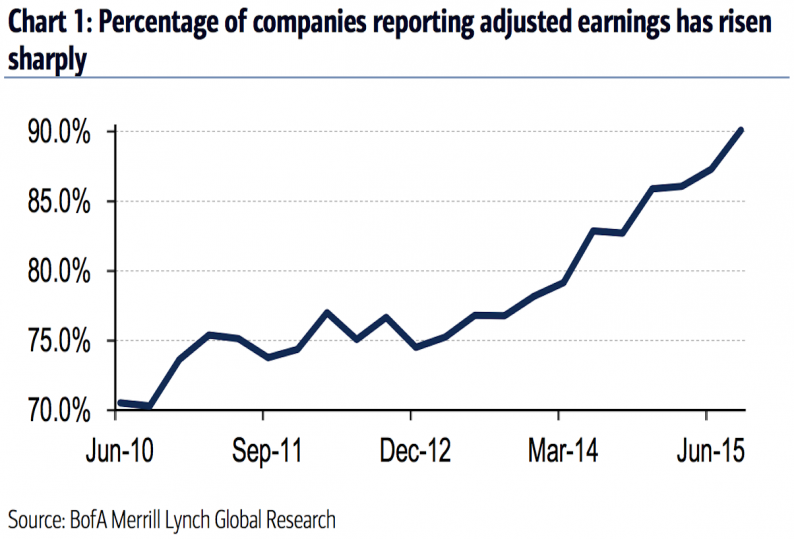Earnings Worse Than You Think
Just like the hit series “House Of Cards,” Wall Street earnings season has become rife with manipulation, deceit and obfuscation that could rival the dark corners of Washington, D.C.
What is most fascinating is that so many individuals invest hard earned capital based on these manipulated numbers. The failure to understand the “quality” of earnings, rather than the “quantity,” has always led to disappointing outcomes at some point in the future.
According to analysts at Bank of America Merrill Lynch, the percentage of companies reporting adjusted earnings has increased sharply over the past 18 months or so. Today, almost 90% of companies now report earnings on an adjusted basis.

Back in the 80’s and early 90’s companies used to report GAAP earnings in their quarterly releases. If an investor dug through the report they would find “adjusted” and “proforma” earnings buried in the back. Today, it is GAAP earnings which are buried in the back hoping investors will miss the ugly truth.
These “adjusted or Pro-forma earnings” exclude items that a company deems “special, one-time or extraordinary.”The problem is that these “special, one-time” items appear “every” quarter leaving investors with a muddier picture of what companies are really making.
As BofAML states:
“We are increasingly concerned with the number of companies (non-commodity) reporting earnings on an adjusted basis versus those that are stressing GAAP accounting, and find the divergence a consequence of less earnings power.
Consider that when US GDP growth was averaging 3% (the 5 quarters September 2013 through September 2014) on average 80% of US HY companies reported earnings on an adjusted basis. Since September 2014, however, with US GDP averaging just 1.9%, over 87% of companies have reported on an adjusted basis.Perhaps even more telling, between the end of 2010 and 2013, the percentage of companies reporting adjusted EBITDA was relatively constant and since 2013, the number has been on a steady rise.
We are increasingly concerned with this trend, as on an unadjusted basis non-commodity earnings growth has been negative 2 of the last 4 quarters, representing the worst 4 quarter average earnings growth in a non-recessionary period since late 2000.”
This accounting manipulation to win the “beat the earnings” game each quarter is important to corporate executives whose major source of wealth is stock-based compensation. As confirmed in a WSJ article:













Leave A Comment